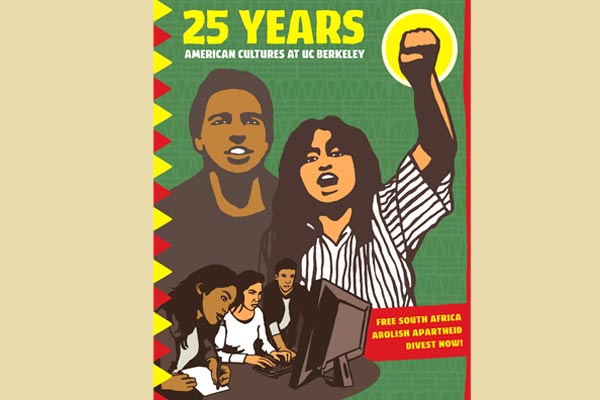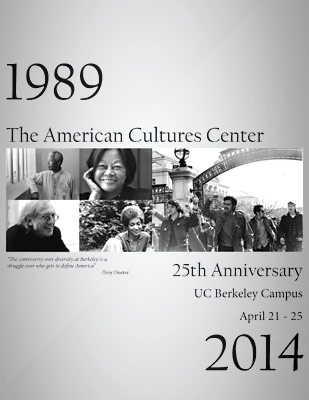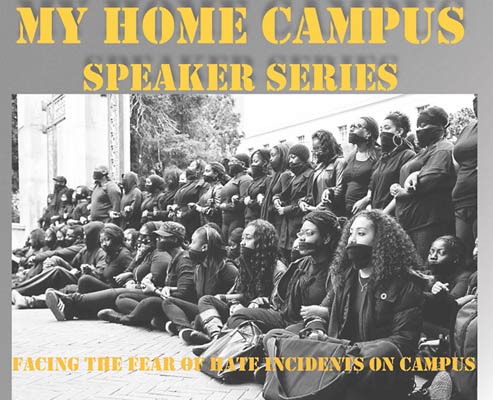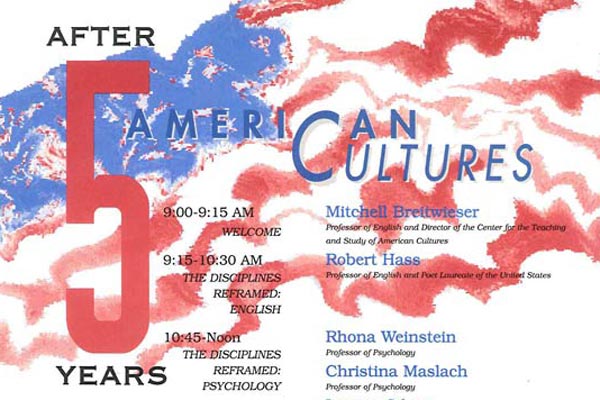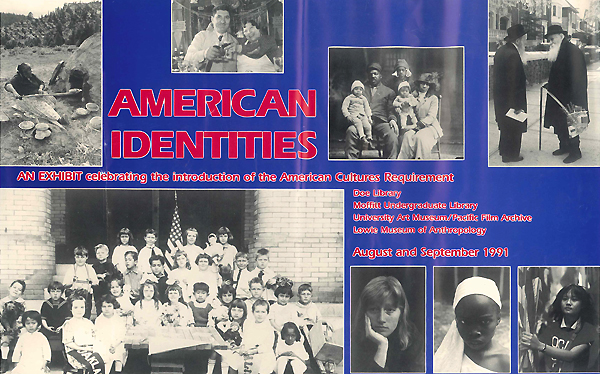American Cultures to mark its 25th with week of events
The American Cultures breadth requirement, established in 1989, required all Berkeley undergrads to pass at least one course involving a comparative study of race, ethnicity and culture in the U.S. A series of events April 21-25 will re-examine AC's origins and legacy and mark the 25th anniversary of a program that made waves.

April 14, 2014
The creation of the Berkeley campus’s American Cultures program 25 years ago is the focus of a weeklong series of events April 21 to 25.
The American Cultures breadth requirement, unique to Berkeley at the time, established that all undergraduate students, as part of their graduation requirements, needed to pass at least one course involving comparative study of race, ethnicity and culture in the United States.
The AC breadth requirement emerged at a time of transition for the campus. Professor of Sociology Troy Duster — who will speak April 23 about AC’s early years — has described it as a “seismic transformation” in the campus’s demographic composition, from a student body that was about 80 percent white in the 1960s to about 60 percent white by the mid-’80s.
“In the middle-’80s we began hearing strong movement talk about the curriculum not being reflective of the experience of students,” Duster said in an interview with the Regional Oral History Office. “And it coincided with the anti-apartheid movement. Here we had students saying, in a huge social movement in the country, ‘Let’s free South Africa,’ and some students saying … sotto voce, ‘How about freeing the curriculum in America?'”
Agitation for curricular reform led to a decisive moment on April 25, 1989, when the Berkeley Division of the Academic Senate voted to establish a new graduation requirement affecting all campus undergraduates. Regulation 300, the Breadth Requirement for American Cultures, passed with a vote of 227 to 194, in a meeting attended by a large number of faculty. Several hundred students, as well, were there for the Academic Senate meeting in Zellerbach Auditorium, which spilled over into Pauley Ballroom.
Berkeley’s AC program became a nationwide model implemented at other University of California campuses and at colleges and universities throughout the country.
Campus events next week to mark American Cultures’ 25 years are open to the public. They include the following:
Monday, April 21, 5-7 p.m., Ethnic Studies Library, 30 Stephens Hall
In Conversation: Current AC Student Advisory Board and 1989 UC Berkeley undergraduates
Tuesday, April 22, 6-8 p.m., Multicultural Community Center, Hearst Annex D-37
The Art of AC! Melanie Cervantes, of the graphic-arts collaborative Dignidad Rebelde, will present the 25th-anniversary poster, introduce an exhibit of AC graphics spanning the program’s 25 years and discuss the role of art and activism.
Wednesday, April 23, 3-5 p.m., 470 Stephens Hall
The AC Center: The Early Years, featuring Troy Duster, Chancellor’s Professor of Sociology, and Ron Choy, founding AC Program director
Thursday, April 24, 9 a.m.-5 p.m., Anna Head Alumnae Hall
Research Justice: A Symposium Exploring Community Engaged Scholarship (register online)
Friday, April 25, 9 a.m.-noon, Anna Head Alumnae Hall
Social Justice in Higher Education: Lessons from 1989, featuring a keynote speech by Pedro Noguera, professor of education at New York University, followed by a Q&A moderated by Lisa García Bedolla, professor in the Graduate School of Education (click here to register).
For more information: See the AC 25th-anniversary website or email [email protected].
